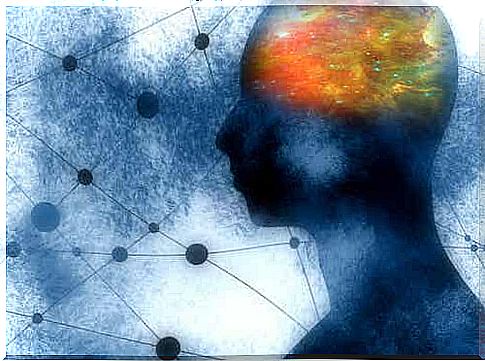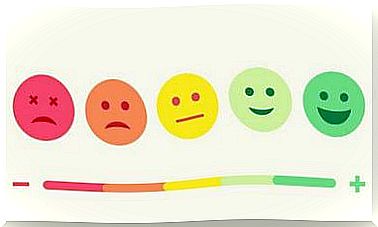The Brains Of Introverted People

Introverted people’s brains tune into their surroundings differently. These people prefer calm environments and process stimuli and information in a slow and thoughtful way. Furthermore, they need moments of solitude to practice internal dialogue and thus recharge their energies.
Almost a hundred years have passed since Carl Gustav Jung, in his work Psychological Types , introduced the concepts of “introversion” and “extroversion”. Neuroscience, in fact, continues to support this distinction by showing us, in a certain sense, a fascinating aspect: our personality is not only the expression of internal psychological mechanisms, the result of our education or our experiences.
It is also our brain anatomy, a highly complex and specific neuronal universe, that determines who we are and why. Sir Arthur Conan Doyle, through the mouth of his literary character Sherlock Holmes, stated that “the brain of a man initially looks like an attic: it is necessary to choose the furniture with which to fill it”. This statement, however, is not entirely true.
Each of us comes into the world with predetermined patterns, which partly determine who we will be. It is true that through experience, training and practice, we will be able to make the right changes.
However, it is very difficult for an introverted person to quickly begin to act and have the same behavioral needs as an extroverted person. In the next lines we will try to better understand these aspects.

The brain of introverted people: characteristics and differences compared to the extroverted brain
If we want to describe a person, we can rely on a multitude of terms available: talkative, serious, funny, witty, hardworking, imaginative, and so on.
However, when we use the word “introvert” or “extrovert”, we immediately get a general idea of the person. It is good to clarify, however, an important aspect: our personality is not always extroverted or 100% introverted.
In some cases it may show needs for extraversion, while in others for introversion. However, broadly speaking, we tend to tune into one of these two brain models, orchestrated by a specific neuronal anatomy. Let’s see what the science says about it.
The brains of introverts and dopamine
One of the aspects that distinguishes the introverted brain from the introverted one is the lower need to seek stimulating experiences.
This profile doesn’t need any social events or parties to feel some happiness. He can enjoy it in some moments, but he doesn’t need constant social contact to feel good.
On the contrary, the extroverted personality needs to socialize, loves novelties, risks, etc. This behavior is mediated by the neuronal mechanism of dopamine.
Introverted people are much more sensitive to dopamine and acetylcholine than extroverted ones. Low levels are enough to make them feel good and feel motivated. Conversely, in the presence of too many external stimuli they experience anxiety and stress.
Extroverted people, on the other hand, as Dr. Marti Olsen Laney argues in his book The Introvert Advantage (2002), need numerous external stimuli to enjoy the benefits of dopamine, as they are less sensitive to the aforementioned neurotransmitter.

Introversion and the parasympathetic nervous system
The nervous system is made up of two parts: sympathetic and parasympathetic. While the former regulates responses related to action, flight or struggle by means of some neurotransmitters such as adrenaline, the parasympathetic governs more “relaxed” functions such as rest, digestion, etc.
Well, naturally, introverts and extroverts use both systems. However, in introverted personalities the parasympathetic system is more active, regulated by acetylcholine (neurotransmitter of relaxation).
This predisposes them to more relaxed activities, to find well-being in rest, in reading a good book and ultimately at a certain level of inactivity compared to those who constantly need to do something.
The brains of introverted people are more reflective
The introverted brain works differently : it is placid, thoughtful, and processes its surroundings at a more attentive pace. But introverted people are also more likely to think too much, which is why it is often difficult for these individuals to make quick decisions. What is the reason?
Dr. Inna Fishman, of the Salk Institute for Biological Sciences in La Jolla, California, conducted an interesting study using magnetic resonance imaging. Apparently, the thinking process in introverted personalities follows a longer path than that of extroverted people. Specifically, the path is as follows:
- Right frontal area of the insula, linked to empathy, self-reflection and emotional meaning.
- Broca’s area, which regulates the internal dialogue.
- Right and left frontal lobes, responsible for planning, evaluating ideas, expectations, etc.
- Left hippocampus, structure involved in emotional memories.

To conclude, it is interesting to discover the influence of cognitive activity on our personality. Just as it is equally interesting to verify that over time society has enhanced the extrovert, more open character ; able to extricate himself with brilliance and resoluteness both in the public and in the social sphere.
Nowadays, however, the introverted personality is also gaining ground. It is not always necessary to perform great feats to be effective; sometimes a little wise serenity is enough.









